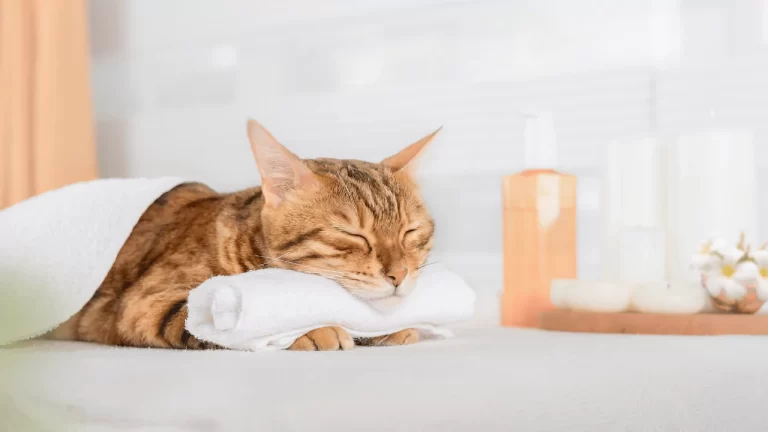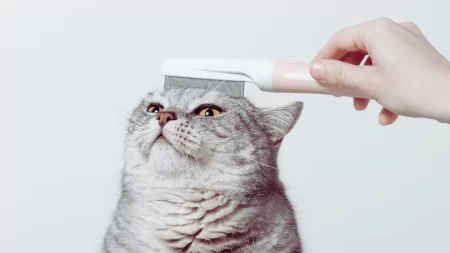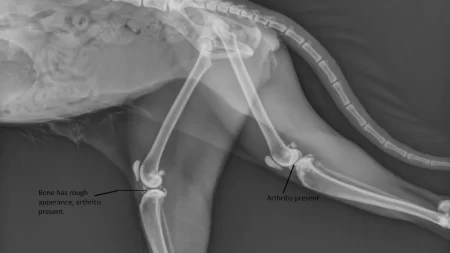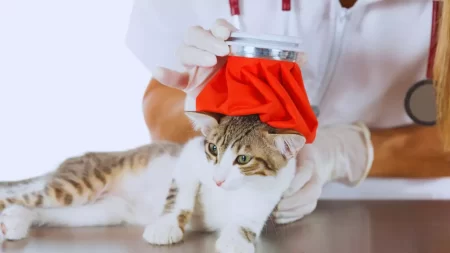You can assess your cat’s health by observing its physical signs, behavior, and any changes in its routine. A healthy cat will exhibit certain physical and behavioral traits that indicate overall well-being.
Physical Signs of a Healthy Cat
- Good grooming habits: Cats are naturally fastidious creatures and will groom themselves regularly. A healthy cat should have a clean, shiny coat with no matting or tangles.
- Lifted or twitchy tail: When your cat is happy and relaxed, their tail should be held high in the air or twitching gently. A lowered or tucked tail can be a sign of fear or anxiety.
- Comfortable and relaxed body language: A healthy cat should be relaxed and comfortable in their environment. They should not be constantly tense or hunched over.
- Dilated eyes: Dilated eyes can be a sign of excitement or playfulness. However, if your cat’s eyes are constantly dilated, it could be a sign of a medical condition.
- Forward-facing ears: A healthy cat’s ears should be pointed forward and alert. If your cat’s ears are flattened against their head, it could be a sign of fear or aggression.
Behavioral Signs of a Healthy Cat
- Hearty appetite: Cats should have a healthy appetite and eat regularly. A sudden decrease in appetite can be a sign of illness.
- Playful patterns: Cats are naturally playful creatures and should engage in regular play activity. A lack of interest in play can be a sign of boredom or illness.
- Good sleep habits: Cats typically sleep for 16-18 hours per day. However, if your cat is sleeping more or less than usual, it could be a sign of a medical condition.
- Vocal communication: Cats communicate with their owners through vocalizations, such as meowing, purring, and chirping. A healthy cat should be vocal and communicative.
- Purring: Purring is a sign of contentment and happiness in cats. However, if your cat is purring excessively, it could be a sign of pain or stress.
Signs of a Healthy Kitten
- Proper growth and development: Kittens should grow steadily and reach their normal weight for their breed.
- Playful and energetic behavior: Kittens are naturally playful and energetic. A lack of interest in play can be a sign of boredom or illness.
- Good eating and sleeping habits: Kittens should eat regularly and sleep for 16-18 hours per day.
- Curiosity and exploration: Kittens are naturally curious and love to explore their surroundings.
- Socialization: Kittens should be socialized with people and other animals from a young age.
Observing for Changes
It is important to observe your cat’s behavior and physical appearance regularly so that you can notice any changes. Changes in your cat’s behavior, physical appearance, litter box habits, or eating or drinking habits can be a sign of illness.
Consulting with a Veterinarian
If you are concerned about your cat’s health, it is important to consult with a veterinarian. A veterinarian can perform a physical examination and run any necessary tests to rule out any medical conditions.
Conclusion
By following these tips, you can learn how to check if your cat is healthy. Early detection of illness is important so that your cat can receive the treatment they need.







